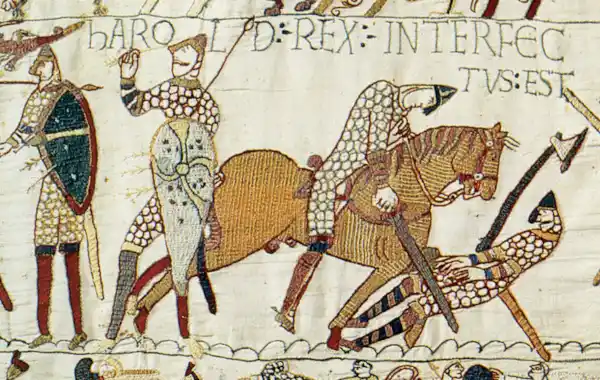25 October 2016
|
New study looks at diet impact of 1066 invasion
Researchers are aiming to discover what impact the Norman Conquest had on our ordinary ancestors’ diet, cooking habits and health, 950 years after William of Normandy landed on English soil.
Cardiff University’s Dietary Impact of the Norman Conquest project will examine human and animal remains and pottery from pre- and post-conquest Oxford to tell the story of the impact of 14 October 1066, better known as the Battle of Hastings.
Specialists from the Universities of Sheffield and Bristol are collaborating on the research project funded by Cardiff University, the Society of Antiquaries of London, the Royal Archaeological Institute and the Society for Medieval Archaeology.
Profound socio-political change in England is clear following the Norman Conquest. Sensitive to socio-political changes, diet can indicate cultural preference, economics and identity. Previous research has shown that elite taste changed quickly with the arrival of French cuisine. More pork, chicken and venison was eaten, but the impact on the wider population is unclear.
The new study aims to reveal how the diet of ordinary people changed, how cooking habits altered and the wider impact of the conquest on the physical health of the people of Oxford, a community at a cultural cross-roads between north and south in the early medieval period.
Specialists in medieval artefacts, Saxo-Norman archaeology, funerary archaeology and bioarchaeology will investigate diet on an individual level, by analysing bone chemistry and assessing the contribution of meat, fish and grain in ancestors’ diets.
The skeletal and dental health of individuals from Oxford cemeteries will be examined for the physiological impact of dietary changes, while organic residue analysis of pottery from recently excavated sites in Oxford will indicate how and what was being cooked by our forebears.
Project leader Dr Ben Jervis, expert in Saxo-Norman archaeology at Cardiff University’s School of History, Archaeology and Religion, explained: ‘This study provides a unique glimpse into the impact of 1066 on domestic activities. Through a focus on food culture, our research will build a deeper understanding of the implications of early medieval socio-political change for the everyday lives of ordinary people.’
Dr Elizabeth Craig-Atkins, lecturer in human osteology at the University of Sheffield, added: ‘We have been able to generate a large sample of data concerning metabolic diseases, dental disease and general biological stress which will, for the first time, be fully integrated with both isotope and ceramic evidence to examine how ordinary people’s lives really changed after the Norman Conquest.’
Completing in early 2017, the project will share findings at Oxfordshire Museum and in academic journals to advance research on this landmark period in British history.
To find out more about the Norman Conquest and the Battle of Hastings, read our guide here.








